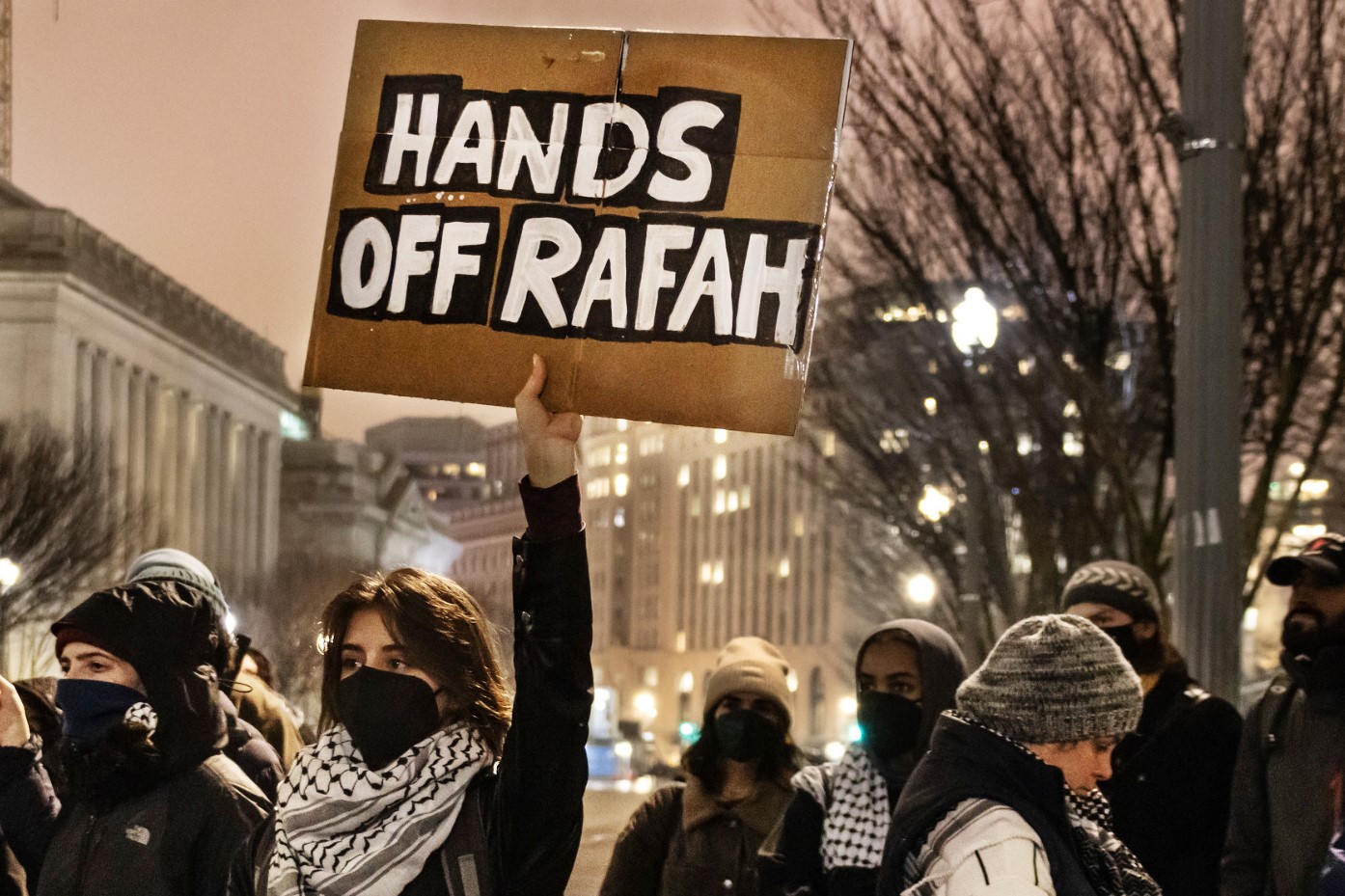
The 10 March deadline for the attack on Rafah has come and gone, and there is no attack yet. Could it be that Netanyahu is having second thoughts? The answer to that is clearly, no. The Israeli government is manoeuvring under pressure from outside, in particular from the US administration, while at the same time being internally divided. Is the US pressure due to humanitarian concerns on the part of Biden? The answer, again, is no. The US continues to support Israel in its genocidal onslaught on the Palestinian people, as testified by its increased military aid. So why the delay in the attack?
In a previous article, Rafah onslaught: the spark that could set the Middle East alight, we explained the potential revolutionary consequences for the whole of the Middle East if Israel goes into Rafah, killing thousands of civilians on a scale that would dwarf the death toll in the more than five months of war so far.
This has clearly concentrated the minds of the despotic regional regimes, from Egypt to Jordan and beyond, but also of the imperialists, who are seeking ways of stabilising the situation and of avoiding a wider conflagration.
This, in part, explains the present apparent stalemate. Negotiations involving Israel and Hamas that aim to achieve some kind of ceasefire, albeit ‘temporary’, are ongoing. An Israeli delegation recently arrived in Doha to take part in indirect negotiations, with the stated aim of getting a better deal for Israel than what has been on the table so far.
The sticking points, however, remain the same since negotiations started: Israel is seeking a temporary truce – there is talk of a possible six-week period – in exchange for the release of hostages, while Hamas is seeking a permanent ceasefire with a total withdrawal of Israeli troops from Gaza.
The present negotiations envisage three stages: a temporary ceasefire with the release of around 35 hostages, followed later by a permanent ceasefire in a second phase, with the release of the remaining hostages. The third and final stage would see a lifting of the blockade on Gaza and the beginning of reconstruction work.
The problem is that Israel has openly stated that it rules out any permanent ceasefire, and that once all the hostages are released, it would recommence its war with the aim of the total destruction of Hamas.
As we can see, things do not at all look optimistic for an end to the war any time soon. That is because what we have here are diametrically opposed interests. Netanyahu has very little popular support inside Israel, and the only way he can remain in office is to keep Israel in a state of war. Hamas, on the other hand, cannot accept anything but the complete withdrawal of Israeli troops from Gaza.
US imperialism losing its grip
An important role in this very complicated equation is played by the United States. Israel depends heavily on the US, in particular for its supply of key weaponry, especially of the electronically precision-guided type, which it needs to hit what it claims are Hamas bases inside Gaza. Without US support, Israel would be far more limited in its ability to continue its war. But in spite of all of Biden’s rhetoric about reducing the number of civilian casualties, there is one thing he is not prepared to do: to cut off the military aid. The hypocrisy of the man stinks to high heaven.
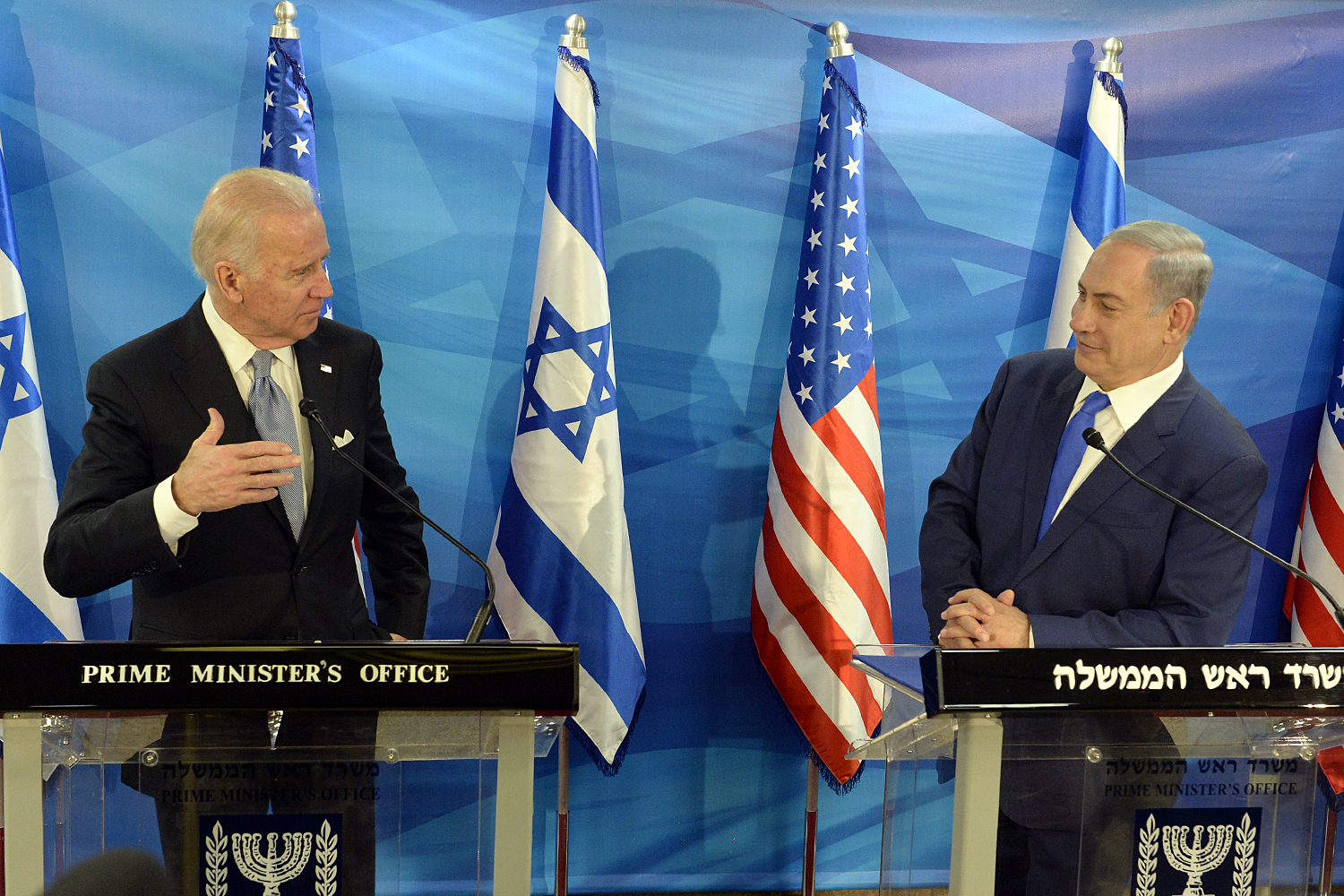
The problem Biden would face is that the authority and the credibility of the United States as a reliable ally – when things get difficult – has already been undermined over the years. And to seriously move against Israel would further undermine that authority. The US has built up connections and alliances with a myriad of countries around the world. Such alliances are supposed to guarantee both the interests of US imperialism and those of its partners. What use is an alliance with a superpower that cannot protect the interests of the local elites?
The Saudis for instance have not forgotten how the US dropped Egyptian president Mubarak in the face of the revolutionary uprising of 2011 – against the wishes of the Saudi regime. The reason they did so was that the Mubarak regime could no longer hold back the masses, and in order to regain some control over the situation, it was necessary that Mubarak should go. The Saudis took the message: “faced with potential revolution in the future, our positions of power and influence cannot be guaranteed by the US”.
The fact is that over a long period of decades, US imperialism has undergone a process of relative weakening. It is still by far the most powerful imperialist country in the world, but its domination does not have the same reach it had in the past. One key element in understanding this process is to be found in its economic muscle.
By the end of the Second World War, the United States was producing 50 percent of global GDP within its borders, while also holding 80 percent of the world’s hard currency reserves. Today the United States’ share of world GDP stands at half what it was back then, at around 24 percent. And meanwhile other important players have appeared on the scene, foremost among these being China, together with a number of regional powers, each vying for power and influence.
The dominant economic position the US had at the end of the Second World War gave it immense diplomatic and military weight. This explains why, for example, in the 1950s when the US told Israel what to do, the government of Israel quickly stepped into line. In 1956, after the Suez Canal fiasco, when Israel had occupied the Sinai peninsula, as soon as the US told the Israeli forces they should withdraw, they very obediently did so. Compare that to today, where Netanyahu just keeps showing Biden the finger, and gets on with his own plans for Gaza.
Biden has repeatedly appealed to Netanyahu to reconsider his planned attack on Rafah, or at the very least to move in such a way as to significantly reduce deaths among civilians. This is not out of any humanitarian concerns, which have never entered the calculations of US imperialism. The Biden administration continues to state that it supports Netanyahu’s overall goals, but it keeps insisting that there are other ways to defeat Hamas.
On Monday, Biden called on Netanyahu to send a team to Washington with the explicit request of discussing how a full-scale military attack on Rafah could be avoided, and it seems that the Minister of Defence himself, Gallant, is to be part of the Israeli delegation. At the same time, US Secretary of State Antony Blinken has gone back out to the Middle East on his sixth visit since the war began, in an attempt to bolster the ongoing negotiations.
The reason for all this is to be found on two fronts. The first is that an onslaught on Rafah would massively increase the internal contradictions within many of the reactionary Arab regimes in the region that are also allies of the US, such as Jordan, which was designated a US major non-NATO ally by the United States back in 1996, or Egypt, which is also considered a valued US partner in the region.
The second is that the war in Gaza has become an important element in US domestic politics. The presidential elections are being held at the end of this year, and it seems almost a foregone conclusion that Trump will win. Biden’s handling of the war has cost him the support of significant layers, especially among the youth that helped him clinch victory over Trump in 2020, but also among Muslim voters in some key states. Biden desperately needs to show that he is capable of bringing the situation in the Middle East under control. So far he has only shown his complete impotence.
The problem he is facing is that Netanyahu is not prepared to behave in the way Israeli governments did back in the 1950s. He can sense the relative weakness of the US, and of Biden in particular, and therefore he keeps answering his appeals in the same manner: “we are going ahead with plans for an offensive against Rafah”. The long-term, historical weakening of US imperialism is thus evident in its present-day relationship with Israel. It can no longer issue orders, but is limited to making appeals in the hope that they will be listened to.
Attack on Rafah delayed but not called off
However, even some of the obtuse hardline Zionists in Netanyahu’s cabinet are being forced to consider where they are going with the present war. The truth is that they believed they could deal with Hamas in a quick, sharp war, destroy its bases, and eliminate its fighting capacity. This is very far from being achieved.
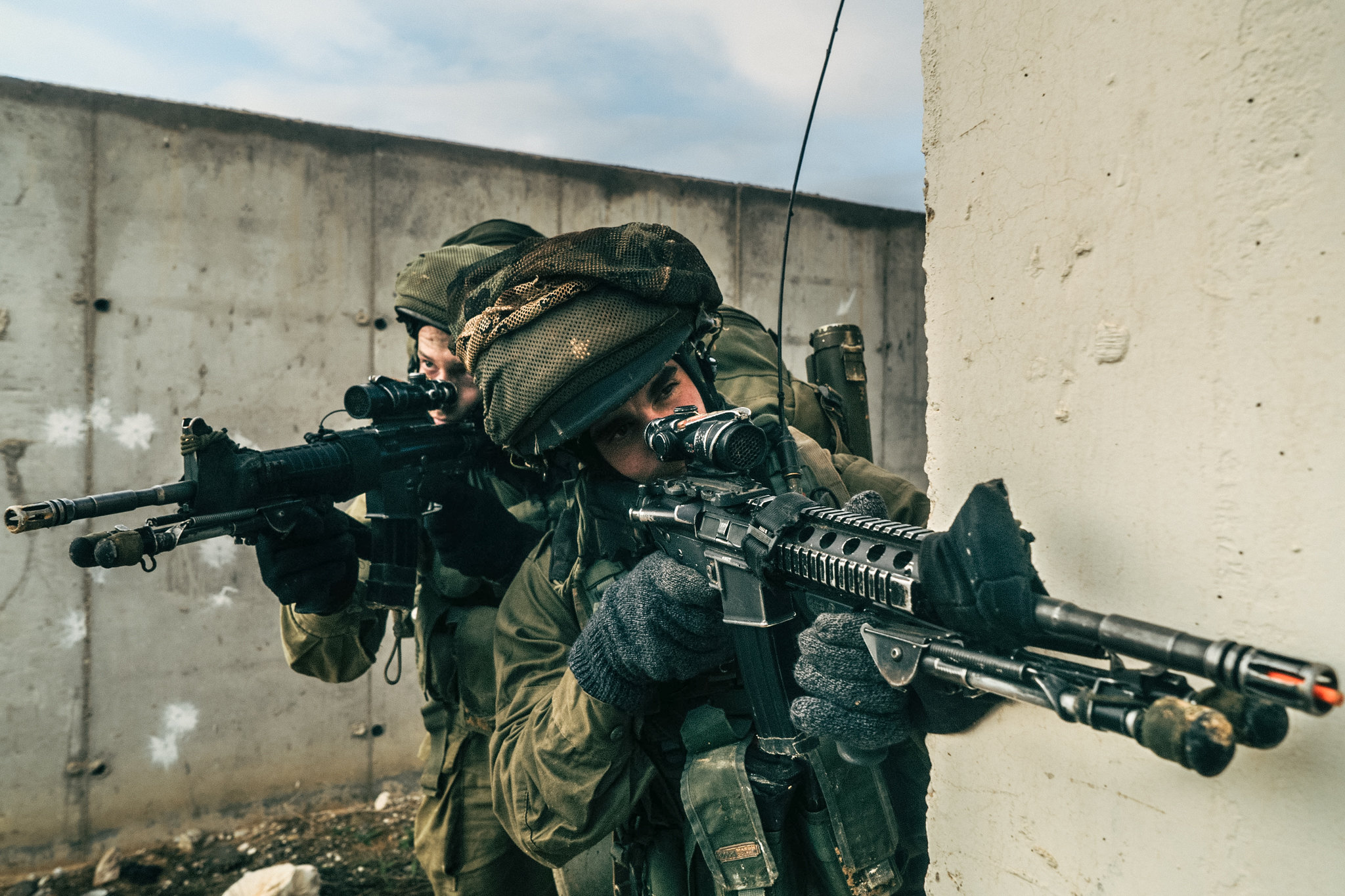
Hamas fighters are still embedded around Gaza. They have returned to areas which the IDF had already taken. To totally destroy it as a fighting force would require a much longer and more drawn-out military campaign. This would inevitably involve far higher civilian casualties than we have seen so far.
This is putting an enormous strain on all the surrounding Arab regimes, which fear being overthrown in a revolutionary uprising if they continue to be seen as being complicit, by their action or inaction, in the massacre of the Palestinians. It is also polarising opinion in the US and Europe, having a radicalising effect especially among the youth who massively sympathise with the cause of the Palestinians.
Attention is being focussed on the IDF’s plans to go into Rafah, and what their consequences would be. Combined with this, we have all the reports coming out about the terrible suffering of the Palestinian people in Gaza, with talk of widespread famine affecting large numbers. This deliberate starvation of hundreds of thousands has been described by the UN as constituting a war crime. If this is allowed to continue for much longer, the anger of the Arab masses across the region could reach breaking point. And the US would see all its plans to keep the region under control in tatters.
As if this were not bad enough for US imperialism, there is the ongoing conflict on the border with Lebanon. There is open talk that once the IDF has dealt with Gaza, their attention would turn to Hezbollah. The levels of armed skirmishes, and of exchanges of rocket fire across the border, have gradually increased as time has gone by. And some within the Israeli government are openly talking of the need to open the northern front.
Opposition member of the Knesset, Avigdor Lieberman, Netanyahu’s former defence minister, has openly called on the government of Israel to “come to their senses and transfer the war to the enemy’s territory,” stating clearly that the war should be taken to Lebanon.
A war with Hezbollah, however, would have far-reaching consequences for Israel. Hezbollah is far better equipped than Hamas ever was, and has far more battle-hardened troops on the ground. Although the Israeli armed forces are much better equipped, and could also rely on the delivery of military hardware from the US, Hezbollah could inflict serious damage on Israel. And such a war has the potential to truly become more generalised, with the risk of pulling the US directly into it.
All this explains why Biden keeps piling on the pressure to get Netanyahu to rethink his strategy in relation to Hamas. Until recently, the US has blocked any resolution going to the UN Security Council calling for an ‘immediate’ ceasefire. But the resolution drafted by the US that recently failed at the UN Security Council had precisely that wording.
It referred to “the need for an immediate and durable ceasefire” – with the added proviso, of course, that it should be “tied to the release of hostages” – to allow aid to be brought into the Gaza Strip, to avoid a complete humanitarian disaster and mass starvation from taking place. While pushing for a ceasefire, however, Blinken also added the usual statement that, “of course, we stand with Israel and its right to defend itself…”
It is evident that they are trying to square the circle here. The ceasefire must be immediate, but on condition of the hostages being released, while at the same backing Israel’s military onslaught on Gaza. In spite of this, it is clear that the US are concerned about the consequences of the planned attack on Rafah.
Netanyahu’s response to all this came on Wednesday night during a video call with Senate Republicans – who gave him a friendly welcome – where he stated clearly that he would not relent in his war on Gaza. His request to also speak to the Senate Democrats, however, was rejected. At the moment, the only concession Netanyahu seems to be prepared to make is to delay the attack and to promise that he will allow for a massive evacuation of refugees from Rafah to take place before the IDF goes in.
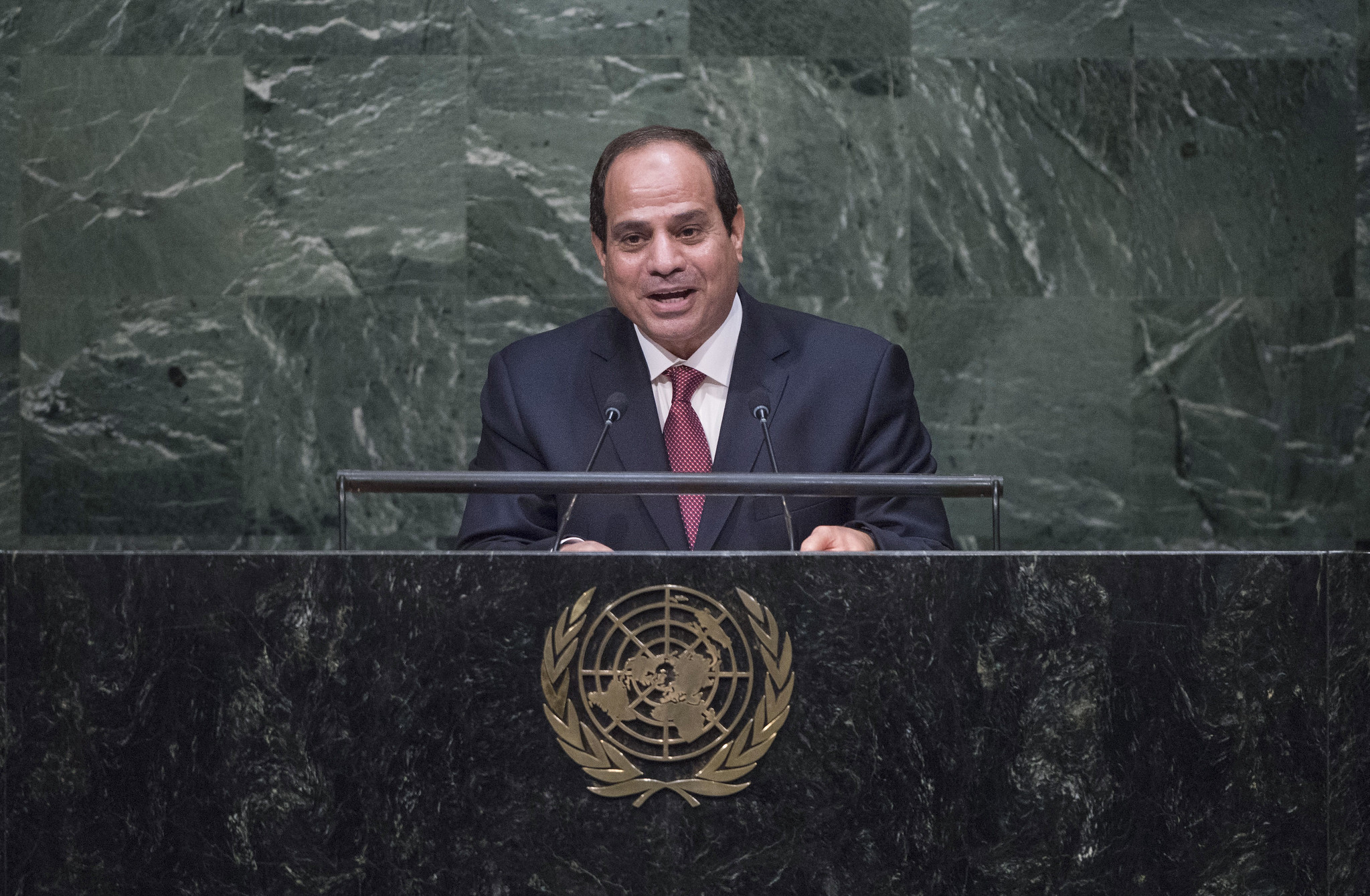
“Our goal in eliminating the remaining terrorist battalions in Rafah goes hand in hand with enabling the civilian population to leave Rafah. It’s not something we will do while keeping the population locked in place. In fact, we’ll do the very opposite, we will enable them to leave,” Netanyahu said during a press statement in Jerusalem, according to Al Jazeera.
But this in no way means putting a halt to the planned attack on Rafah. In the same Al Jazeera report, we read, “No amount of international pressure will stop us from realising all the goals of the war: eliminating Hamas, releasing all our hostages and ensuring that Gaza will no longer pose a threat against Israel… To do this, we will also operate in Rafah.”
But where would the refugees go? We have explained in previous articles that there would be the real risk of a massive spillover of refugees into Egypt – something the far right in Netanyahu’s government has been clearly pushing for. The Al-Sisi regime has already made preparations in the event that this worst case scenario becomes a reality. But such an outcome would put at risk the peace deal between Israel and Egypt, both allies of the US. Even the blockheads of the far-right Zionist parties, together with Netanyahu, can see that such an outcome, far from strengthening Israel’s security, would massively undermine it.
That explains why the IDF has been instructed to evacuate civilians from Rafah back towards central Gaza, to what they have defined as “humanitarian enclaves”. Daniel Hagari, the Israel Defense Forces spokesperson, told reporters last week that the planned offensive on Rafah is “something we need to do”, but he also added that its timing depends on “the conditions to allow it.”
And what are those conditions, according to Hagari? In answer to that question, he stated: “We need to make sure that 1.4 million people will move to humanitarian enclaves that we will create with the international community. They will provide them with temporary housing, food, water, field hospitals.”
All this is a huge task that cannot be carried out overnight. This explains why all the talk now is that an attack on Rafah is not imminent. As Hagari explained, “We are strengthening our readiness. I do not want to mention time. It will be the best time for Israel.”
So the position of the Israeli government, together with the IDF chiefs, is that they need to prepare what they see as the optimal conditions for an attack on Rafah. For them it is not a question of ‘if’ but of ‘when’.
Netanyahu on a tightrope
Netanyahu is also facing different pressures at home. On the one hand, one section of the Israeli population wants everything necessary done to get the hostages released. However, according to a recent poll, 40 percent of Israelis consider eradicating Hamas to be the priority, while only 32 percent consider releasing the hostages to be the main priority.
Most threatening of all for Netanyahu is the fact that, in February, trust in the government fell to 34 percent, and 63 percent of Israelis now believe new elections should not wait until 2026. 36 percent are of the opinion that early elections should be held within the next three months. The outcome of such elections is clear to everyone: it would mean the end of Netanyahu. That explains why it is not ruled out that, in a desperate attempt to cling to power, Netanyahu might decide that it is in his interest to invade Lebanon.
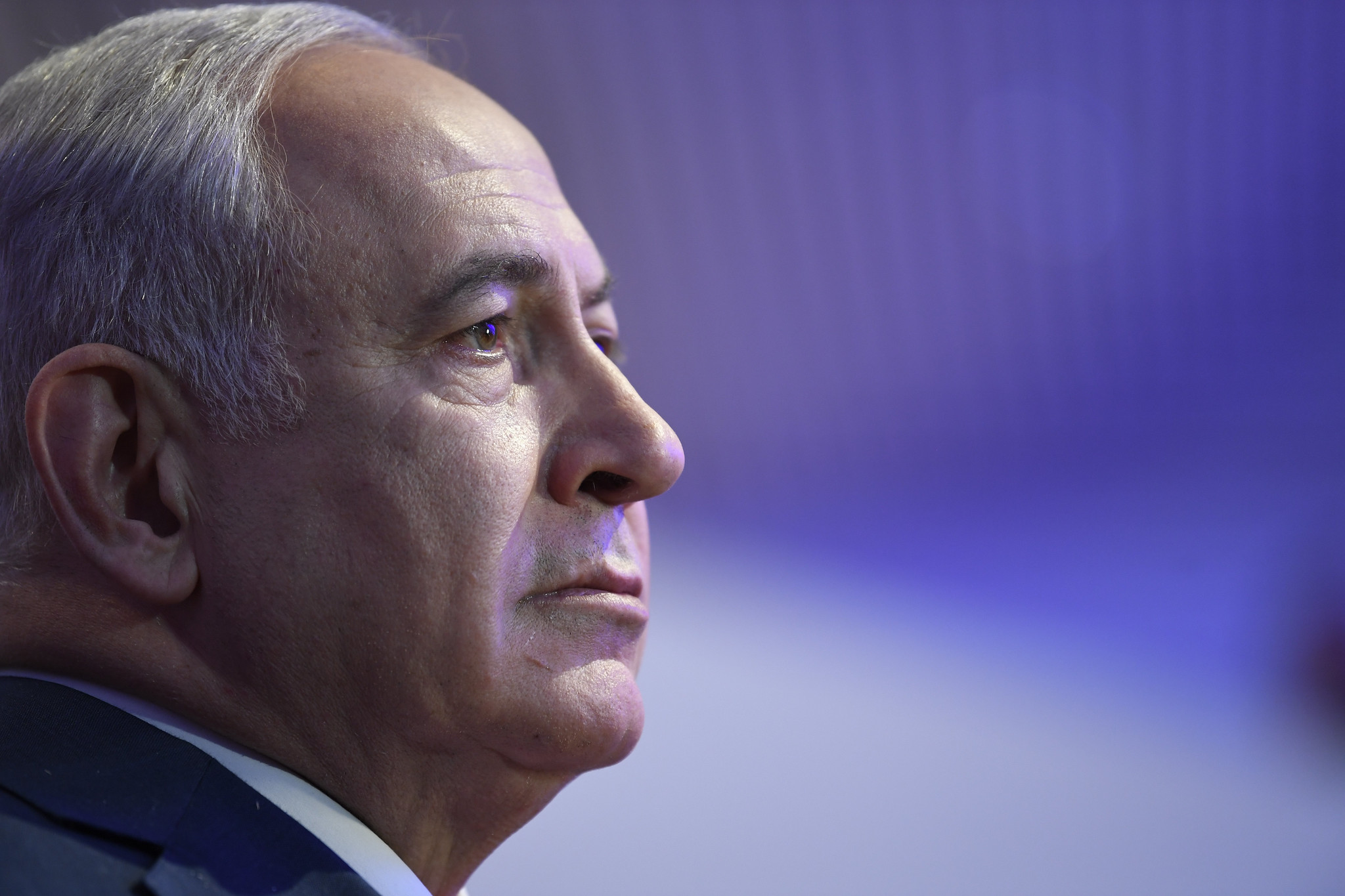
The divisions within the government itself are also becoming more evident as each day passes. Defence Minister Yoav Gallant has come out saying that Israel must use all available channels to bring the hostages home, including negotiation of a ceasefire of some kind, and even making significant concessions in the hostage/prisoner swap that Hamas has put on the table. He is more in line with the position of US imperialism on this question.
And then there is Benny Gantz who is openly behaving like a Prime Minister in waiting. He travelled to the US recently, where he was welcomed almost as if he were the Prime Minister. While there, he obviously discussed plans for a ceasefire with the US government. This provoked the anger of Netanyahu and his far-right cabinet colleagues. The Israeli embassy in the US was instructed not to collaborate with Gantz’s visit, despite the fact that he sits in the National Unity cabinet.
In the US, it is an open secret that Biden wishes to see the end of Netanyahu. He has even had a report drawn up about the prospects of Netanyahu remaining in office. The leader of the US Senate, Chuck Schumer, considered to be the most prominent Jewish politician in the United States and also a close ally of Biden, has gone much further in his criticisms of Netanyahu. He has openly called for his government to be replaced by one that is more willing to toe the line of US imperialism. This provoked the angry response of the Israeli government that “Israel is not a protectorate of the US…”
So long as the war continues, Netanyahu has the excuse he needs for not calling early elections. But the truth is that Netanyahu is walking on a tightrope, and he himself doesn’t know where this war is going, whether he can continue his war, or whether his opponents will move against him before he can complete his plans. All he does know is that the longer he draws out this war, the longer he can stay in office. That is as far as his thinking can go at this stage. This is extremely short-term thinking, and does not match the thinking of other important figures within the Zionist regime.
If he moves in the direction of a ceasefire, he could lose the support of the far right in his cabinet. The far-right, Jewish-supremacist ministers, Ben-Gvir and Smotrich, fear that a ceasefire would endanger their aims. A lengthy ceasefire could make it more difficult to resume the war once it is over.
But if Netanyahu doesn’t reach a deal over the hostages, he could see Gallant, the Defence Minister, and Gantz, an opposition leader who joined the war cabinet for the duration of the war, both increasing their manoeuvres against him.
For now, the stalemate situation continues. The IDF is preparing its offensive on Rafah, and the negotiations are being dragged out as a delaying tactic to allow for the necessary time to put everything in place before they go in. The US is putting pressure on Israel for a halt to the advance on Rafah. And while all this is going on, the butchery continues. After 168 days of war, 32,000 people have been killed, and 74,000 have been injured, a large percentage of them children. Added to this, we now have the prospect of mass starvation affecting large parts of the Gazan population.
We can have no trust in any of the western governments to end the 75-year nightmare the Palestinian people have been suffering. They may yet succeed in imposing a temporary ceasefire, but they will also continue to back Israel, to arm it and to defend it. A ceasefire would be a temporary respite, but would in no way represent an end to the continued danger Gazans face of being bombed to pieces whenever the Zionist ruling class of Israel deem it necessary.
Israel today is a powerful capitalist regime, backed by the strongest imperialist nation in the world, the United States. It is surrounded by other capitalist regimes, most of which stay in power through despotic methods, and are also fully backed by US imperialism. That explains why none of them lift a finger to help the Palestinians who are being pummelled into the ground.
So long as capitalism continues to exist, there will be imperialist powers whose main priority is the preservation of the power, privilege and prestige of the rich. This comes at a cost to humanity, in the form of severe economic crises and wars. They will continue to spend billions in financing wars of destruction. And if whole peoples are denied a homeland, are displaced in their millions, and suffer death and destruction, this is considered a necessary price that people have to pay.
The Israeli onslaught on Gaza has also shown the complete powerlessness of the international institutions, like the UN and the ICJ. Resolutions have been passed, instructions have been issued, but the massacre continues unabated. The truth is, international law is just a fig leaf for the naked rule of the imperialist powers.
The Palestinian people are in the front line of the international class war, and we, the revolutionary communists, stand in full support of their demands for a homeland, for a place where they can live in peace, where they have full citizenship and full democratic rights, together with decent jobs and housing, decent education for their children, decent healthcare for their sick and elderly. That can only be achieved in a worldwide struggle for the revolutionary transformation of society, in which capitalist rule is brought to an end, and where the workers of all countries will have power in their hands.

